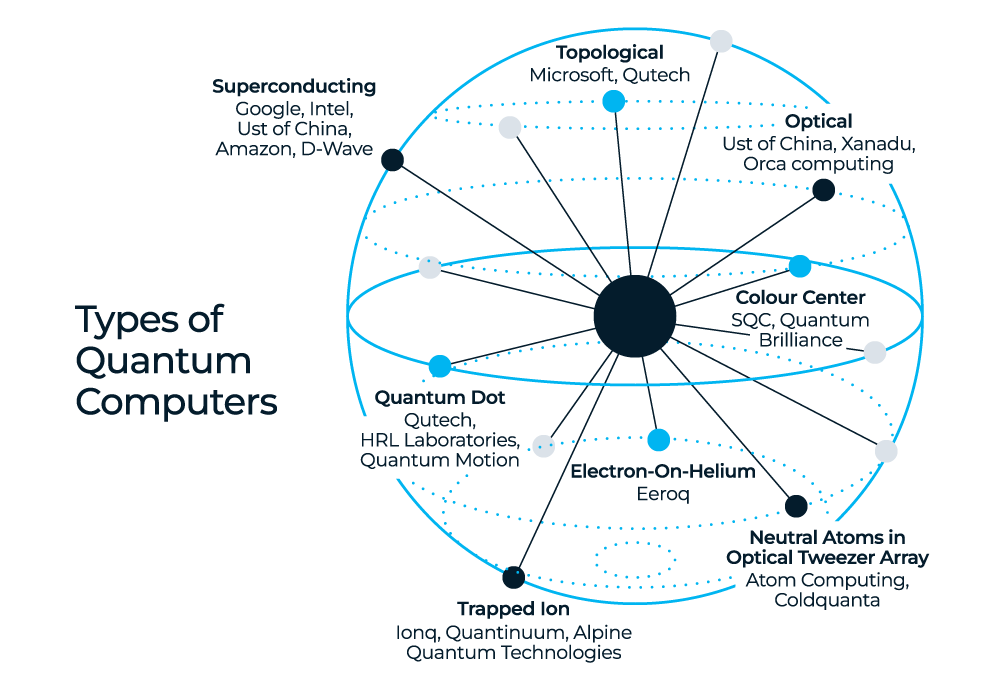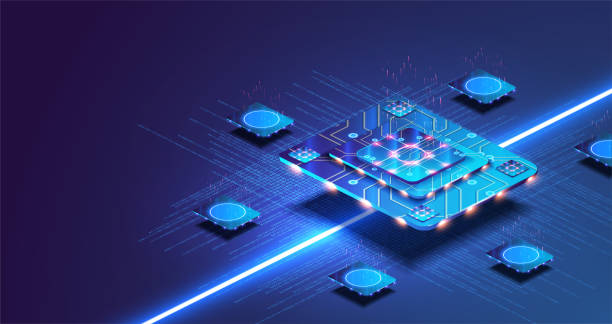Overview
Quantum computing is a type of calculating that uses amount-mechanical marvels, similar to superposition and trap, to perform operations on data. This is different from traditional computing, which uses double integers( bits) to represent data and performs operations using Boolean sense.
In an Quantum Computing, the introductory unit of information is called an amount bit( qubit). A qubit can live in a superposition of countries, which means it can represent multiple values contemporaneously. This allows amount computers to perform certain computations important faster than traditional computers, especially for problems that involve large quantities of data or complex algorithms.
Quantum computing has the implicit to revise fields similar to cryptography, chemistry, and optimization. For illustration, it could be used to develop new, more secure styles of encryption, or to pretend the geste of complex motes in order to design new medicines. still, amount computers are still in the early stages of development, and they face numerous challenges, similar as maintaining the stability of qubits and minimizing crimes in computations.
Type of Quantum Computing

Quantum Annealing
This is a type of amount computing that uses amount annealers to break optimization problems. Quantum annealing workshop by chancing the smallest energy state of a system, which can be used to break problems similar to route optimization and scheduling.
Quantum Simulation
This is a type of amount computing that uses amount computers to pretend complex physical systems. Quantum simulation can be used to pretend the geste of motes, accouterments, and indeed entire ecosystems.
Quantum Cryptography
This is a type of amount computing that uses amount mechanics principles to develop cryptographic protocols that are more secure than classical cryptography. Quantum cryptography can be used to secure communication channels and cover sensitive information from wiretapping.
Quantum Machine Learning
This is a type of amount computing that uses amount computers to perform machine literacy operations. Quantum machine literacy can be used to break complex optimization problems and ameliorate the delicacy of data analysis.
Quantum Error Correction
This is a type of amount computing that uses error correction canons to cover the amount of information from decoherence and other types of crimes. Quantum error correction is essential for erecting practical amount computers, as it ensures that the results of amount calculations are accurate and dependable.
Topological Quantum Computing This is a type of amount computing that uses topological qubits to perform amount operations. Topological qubits are more stable and less susceptible to crimes than other types of qubits, which makes them promising for erecting large- scale amount computers.
Quantum Communication
This is a type of amount computing that uses amount mechanics principles to develop secure communication protocols. Quantum communication can be used to shoot dispatches that are fully secure, as any attempt to block the communication would disturb the amount state and reveal the intrusion.
Quantum seeing
This is a type of amount computing that uses amount detectors to descry and measure physical amounts similar to temperature, pressure, and glamorous fields. Quantum seeing can be used in a variety of operations, including medical imaging and geological disquisition.
Quantum Cryptanalysis
This is a type of amount computing that uses amount computers to break classical cryptographic protocols. Quantum cryptanalysis can be used to test the security of cryptographic systems and develop new, amount-resistant cryptographic protocols.
Quantum Metrology
This is a type of amount computing that uses amount mechanics principles to ameliorate the perfection of measures. Quantum metrology can be used in a variety of operations, including chronometer and navigation.
Uses of quantum computing
Optimization: Quantum computers can be used to solve optimization problems more efficiently than classical computers. This has applications in a variety of fields, including logistics, finance, and manufacturing.
Materials Science: Quantum computers can be used to simulate the behavior of molecules and materials, which can accelerate the discovery of new materials with desirable properties.
Cryptography: Quantum computers can be used to break classical cryptographic protocols, but they can also be used to develop new, quantum-resistant cryptographic protocols.
Machine Learning: Quantum computers can be used to perform machine learning operations more efficiently than classical computers, which could lead to breakthroughs in areas such as drug discovery and personalized medicine.
Financial Modeling: Quantum computers can be used to model complex financial systems, which could improve risk management and investment strategies.
Supply Chain Optimization: Quantum computers can be used to optimize supply chains, which could lead to improvements in efficiency, cost savings, and environmental sustainability.
Weather Forecasting: Quantum computers can be used to simulate complex weather systems, which could improve the accuracy of weather forecasts and help mitigate the impact of natural disasters.
Artificial Intelligence: Quantum computers can be used to improve the performance of artificial intelligence algorithms, which could lead to breakthroughs in areas such as natural language processing and computer vision.



Brand
thanks
You are legend sir